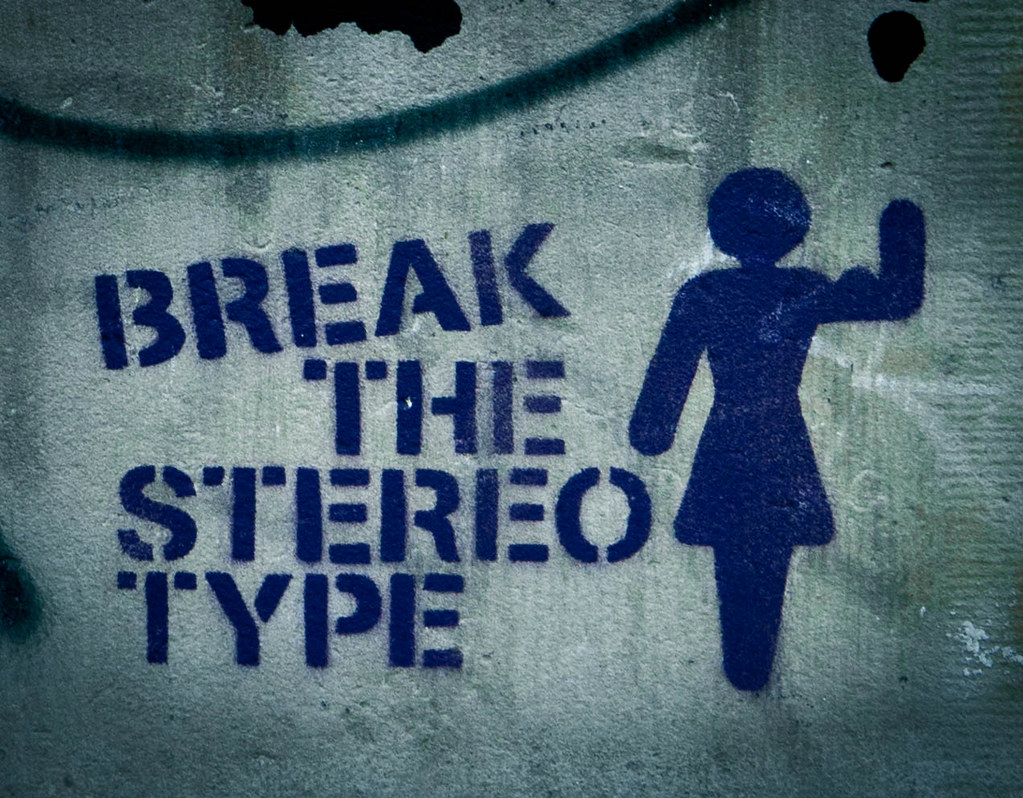
Stereotypes are fixed, oversimplified beliefs that society has about a particular class or group of people. These beliefs are exaggerations of the groups involved. Although some people genuinely depict their stereotypical traits, that is not reason enough to assume they represent all people within that group. According to McLeod (2015), stereotypes are advantageous because they enable us to respond rapidly to situations since we may have had a similar experience before. However, the problem is that the differences between people are always ignored, and the generalization made can be inaccurate. Anyone can hold stereotypes, and they can apply to any group. By stereotyping, a person’s characteristics and abilities are acknowledged, and then it is assumed all members of the same group as the individual possess the characteristics and skills. Stereotypes create social categorization that gives rise to prejudiced attitudes, which can adversely affect the victims’ well-being.
As a young child, I had a sight issue, and my optician recommended I start wearing glasses. Wearing glasses did not seem to have any impact until I was all grown and mature. Surprisingly people who wear glasses are stereotyped and believed to have various features or characters. In this essay, I will share my experience with a stereotype, its effects, and how it helped me grow.
We can broadly categorize stereotypes as either positive or negative. For instance, ‘sober as a judge’ suggests that judges are respectable, rational, and always thoughtful. An example of a negative stereotype is assuming all people from a given race are criminals. The decision that older people are incompetent or black women are hot-tempered may guide our actions toward these groups. Therefore, stereotyping gives rise to prejudice, an unjustifiable negative attitude toward a particular group of people or its members. It can be in the form of discomfort, dislike, disgust, fear, and even hatred. The problem with stereotypes and prejudices is that they create discrimination. Stereotyping causes people to portray unjustified behavior against members of out-groups because of their group membership.
Where do stereotypes originate -Why do we stereotype?
According to psychologists, heuristics (mental shortcuts) help the brain navigate the world (Jilani, 2019). It is because of these mental shortcuts when we see a creature with feathers sitting on a tree branch, we deduce it flies and eats worms. Therefore, people stereotype to simplify the social world. Stereotypes help reduce the amount of thinking we require when we meet a new person. If, for instance, you were to conduct a transaction with an unknown individual and they come in a posh car, then they are professional and trustworthy. However, the use of these mental shortcuts can lead to potentially damaging assumptions about other people. For example, racial stereotyping is a product of believing membership in a racial group defines a person on a range of characteristics, such as behavior.
Stereotypes of wearing glasses
People who wear glasses are assumed to be partially or unable to see anything if they take the glasses off. But this is not correct; depending on the vision of a person, one can be far-sighted or nearsighted. In each case, the individual can see without the glass, but their vision might be blurry. Sometimes when I go out without my glasses, people who are used to seeing me wear them often ask if I can see. Sometimes I feel offended but compose myself and explain to them my glasses only help reduce the amount of light when I am reading. Most people do not understand the different needs of persons wearing spectacles. Some spectacles help see objects that are far, others help visualize nearby objects, and others limit light intensity. But under all the circumstances, the user is not blind; the glasses are like tools to boost their sight.
Need a custom essay on stereotypes in society? Hire cheap assignment helper; we are available 24/7
Another typical stereotype associated with the wearing of glasses is the assumption that persons wearing glasses are intelligent. In college, most students have the impression that I have much knowledge of all academic subjects because I wear glasses. But this is false. I am no different from the other typical students. I struggle with the periodic table just as much as anyone else does. There is also the assumption that wearing glass bestows extra knowledge of people, and they have the wisdom to help others solve problems. I remember numerous times when I was called to solve a dispute, and from the look of this, my involvement in the matter was because I wore glasses. The media has made a significant contribution to the spread of the stereotypical thinking that people who wear glasses are nerds (Lipford, 2016). In most movies, the nerdy characters always wear glasses and are passionate about video games and reading copious amounts of material. But this is not the personality of all students wearing spectacles. Everyone is unique and is amused by different things.

Effects of the stereotype
Since most people assumed I was smart, sometimes I felt uncomfortable asking classmates for help in subjects I did not understand. Most students wearing glasses can share my discomfort. In high school, I could feel ashamed and undermined each time I consulted a classmate for academic aid. I feared that I would tarnish my reputation, and people would start thinking less of me or even start thinking I was wearing the glasses for show. Due to this fear, I hardly asked for help even though I needed it, and as a result, my grades were adversely affected. Eventually, I became more confident and brave enough to seek clarification where necessary—the stereotypes associated with wearing glasses constrain people to try to meet society’s expectations. The stereotype can also force a person to pretend to emulate a character that is not theirs. For instance, I am not fond of the “four eyes” joke, and I do not like it. Friends and family members have mentioned the joke trying to contribute humor to a situation, but they do not realize how tired I am of hearing it! Although we never speak out our thoughts and seem to be okay, internally, we are disgusted.
How the stereotype helped me grow
The assumption that I was smart has been a privilege to me. When the teacher assigned us a group project in high school, the intelligent and focused students wanted to team up with me. And from our interaction, I furthered my knowledge and improved my academic performance. The moment realized I could benefit from people assuming I was smart; the stereotypical thinking stopped bothering me. The stereotype also strengthened me and helped me reduce stereotype threats. A stereotype threat is a case where a person underperforms or fails to do something because they are afraid they will confirm a negative stereotype. For instance, whenever I arrived at class late, without my glasses, and had to sit in the back seats visualizing the board clearly was challenging. At first, I was afraid that speaking about it or changing seats with someone in the front would affirm I cannot see without glasses.
I am no longer fearful of what people will think about me. I prioritize my comfort. My experience toughened me and elevated my self-esteem. The stereotype has also taught me not to be judgmental. Whenever I meet someone new, I do not generalize or assume his personality on the grounds of the experience I have had with past ‘similar’ individuals. I judge people based on their conduct and character, which is a trait I attribute to experiencing the stereotype of wearing glasses.
From my experience with the stereotype, I understand the pain of victims of negative stereotypes. People judged because of their race might not always lament about it, but they are emotionally and psychologically hurt. With my understanding, I strive to dispute stereotypes, especially those that can adversely impact the well-being of victims.
I have grown to be an ethical individual that speaks for the meek to receive fair treatment. Stereotype gives rise to discrimination. Despite the increasingly high rate of globalization and civilization, disparity and discrimination cases are rampant across the world. Some people may argue that stereotypical thinking is not harmful since a person only has a particular thought about people from a given group but does not act on the feeling. But the stereotypical thinking develops an attitude that lures a person to exhibit discriminative deeds. By addressing the various types of stereotypes, the rate of discrimination will significantly reduce.

Stereotypes encourage a particular perception that hinders the acknowledgment of individuality and uniqueness. When a group is stereotyped, people assume that the entire members are disrespectful, which is not valid. Asians are often supposed to be geniuses and good in math. The logic behind this belief is that most Asians depict these features; however, some Asians dislike math. Elimination of stereotypes will make people start to accept people as they are and notice their unique talents. It will also help victims feel comfortable in their skin and take pride in their diversity. As mentioned in the above essay, stereotypes instill fear among the victims and force them to underperformance to avoid affirming people’s perception of them.
The effects of stereotypes can be catastrophic and damage the growth of a child. Negatively stereotyped children look down upon themselves, and they have self-esteem issues. The fight against stereotypes requires people to educate themselves and break their over-generalized beliefs. Assessing the thoughts and feelings that reinforce a belief will lead people to look for the truth and change stereotypes. Working to cut the stereotypes we portray to others is also another effective way of impacting change. People should treat one another the same way they would like to be treated. Those on the receiving end of a stereotype should accept and acknowledge how it affects them. This may entail speaking up and letting others know how they make you feel. Victims of stereotypes should not let the experience undermine them; instead, they should learn from it and improve their well-being.
References
Jilani, Z. (2019, August 28). How to beat stereotypes by seeing people as individuals. Greater Good. https://greatergood.berkeley.edu/article/item/how_to_beat_stereotypes_by_seeing_people_as_individuals
Lipford, M. (2016, March 20). 12 common stereotypes of people who wear glasses. The Odyssey Online. https://www.theodysseyonline.com/common-stereotypes-wear-glasses
McLeod, S. (2015, October 24). Stereotypes. Simply Psychology. https://www.simplypsychology.org/katz-braly.html